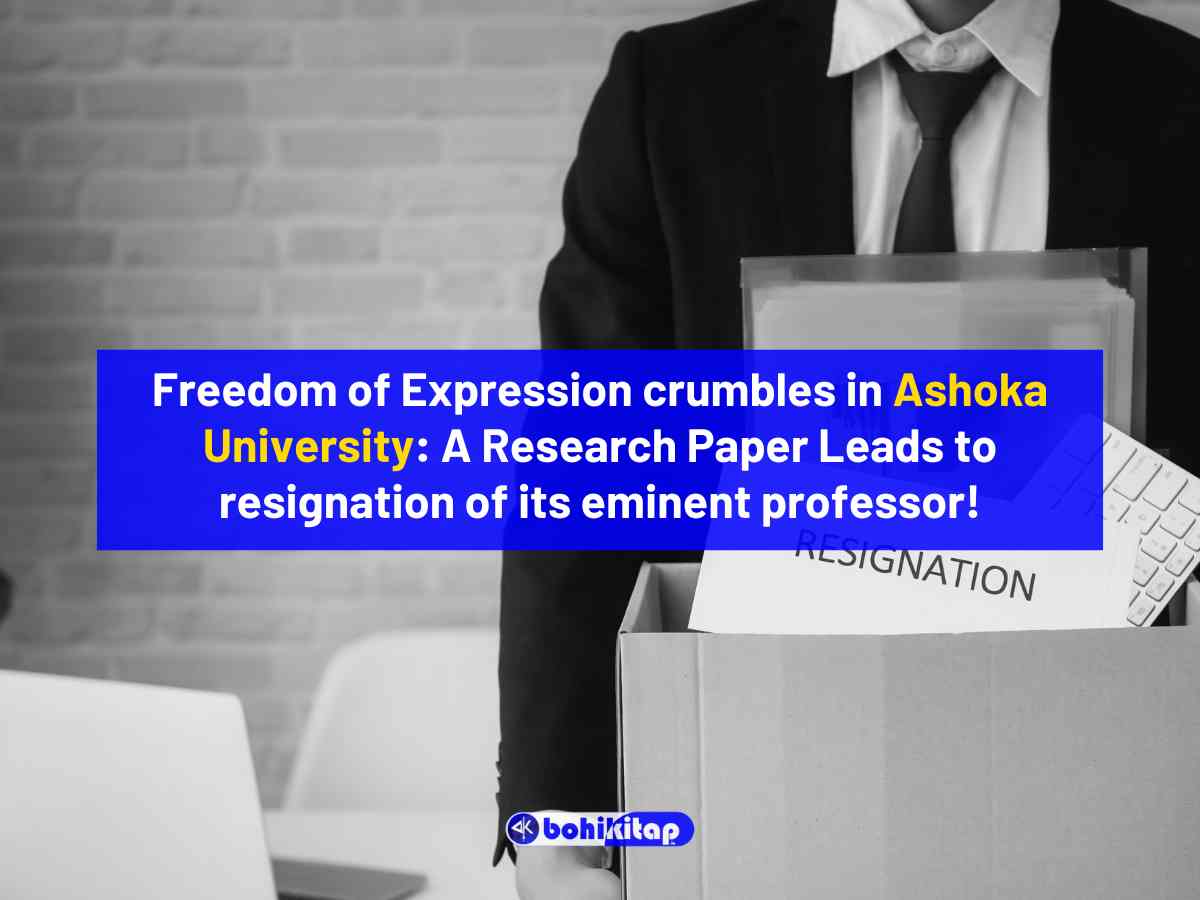Ashoka University, a private liberal arts college in India, has been in the news recently following the resignation of one of its faculty members, Sabyasachi Das. Das, an assistant professor in the Economics Department, submitted his resignation after a controversy over his research paper titled ‘Democratic Backsliding in the World’s Largest Democracy’. The paper suggested the possibility of electoral manipulation in the 2019 Lok Sabha polls, which sparked a heated debate and criticism from some quarters.
The controversy has also raised questions about the state of academic freedom in India, with some commentators seeing the incident as another example of the growing trend of censorship and intolerance towards dissenting voices in the country.
Why is the news of the Research Paper by Sabyasachi Das of Ashoka University creating buzz?
Assistant Professor Sabyasachi Das’s paper on the possibility of electoral manipulation in the 2019 Lok Sabha polls has caused a stir among the faculty at Ashoka University. The paper claimed that the BJP won a disproportionate number of seats in the election due to possible manipulation. This paper has been a topic of discussion among the faculty and students alike. Das’s paper has been widely criticized by some who believe that his research is biased and lacks evidence to support his claims. However, many others have come out in support of Das and his research, arguing that his findings are based on sound statistical analysis.
The controversy surrounding Das’s paper has led to his resignation from the university. In addition, other faculty members at Ashoka University have threatened to stop teaching until Das is reinstated. The university has issued a statement in response to the controversy, stating that it supports academic freedom and encourages open and honest debate among its faculty and students.
However, the statement also emphasized the need for academic research to be conducted in a rigorous and unbiased manner. Despite the controversy, Das’s paper has sparked an important conversation about the role of statistical analysis in Indian politics and the need for unbiased research in the field. It remains to be seen how this issue will be resolved and what impact it will have on the future of research at Ashoka University.
Support from other professors!
The resignation of Sabyasachi Das, an assistant professor at Ashoka University, has caused ripples in the academic community. Das was in the eye of a storm after he published a research paper that suggested voter manipulation in the 2019 elections. The resignation of Das has led to another faculty member, Pulapre Balakrishnan, putting in his papers. The Governing Body of the university has received letters from several professors, threatening a faculty exodus if Das is not offered reinstatement. This development has brought into question the university’s ability to handle academic freedom and dissent.
Das’s resignation has triggered a wave of solidarity from his colleagues, with 87 faculty members signing an open letter in support of him and expressing concern over the university’s commitment to academic freedom. The letter accused the Ashoka University Governing Body of interfering in the process to “investigate the merits” of Das’s study, which was likely to “precipitate an exodus of faculty.”
Do academic institutes require freedom of expression?
The resignation of Sabyasachi Das, an assistant professor of economics at Ashoka University, has raised concerns about academic freedom in the institution. Das had tendered his resignation following a controversy over his research paper titled ‘Democratic Backsliding in the World’s Largest Democracy’, which alleged electoral manipulation in the 2019 Lok Sabha elections in India.
The implications of this controversy for academic freedom are significant. The ability of scholars to engage in independent research and express their opinions without fear of retribution is a cornerstone of academic freedom. When this freedom is threatened, it can have a chilling effect on academic inquiry and the pursuit of knowledge.
The controversy surrounding Das’ paper highlights the need for institutions like Ashoka University to uphold the principles of academic freedom and to protect scholars from interference or retribution for their research and opinions. It is essential for academic institutions to provide a safe and supportive environment for scholars to pursue their research interests and to express their opinions freely and without fear of retribution.
For more educational news, click here.
